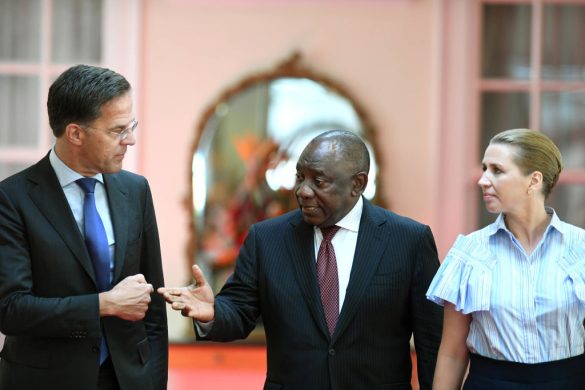Det anses også for at være på høje tid – alene i 2011 blev 17.000 elefanter dræbt ulovligt af svært bevæbnede krybskytter, som hærger stadig flere afrikanske lande – og tallet for 2012 kan vise sig at blive meget højere, når det er gjort op.
GENEVA, 17 May 2013 (UN News Service): Eight countries identified as being the most affected by the illegal trade in elephant ivory have submitted national action plans to the United Nations-backed treaty for the conservation of endangered species containing measures to combat the scourge (svøbe).
The Secretariat of the Convention on International Trade in Endangered Species of Wild Fauna and Flora (CITES) received plans from China, Kenya, Malaysia, the Philippines, Thailand, Uganda, Tanzania and Viet Nam – identified as primary source, transit and import countries affected by the illegal trade in ivory (http://www.cites.org/eng/disc/sec).
The plans – which contain specific activities in the areas of legislation and regulations, national and international enforcement, outreach and public awareness – were requested by the CITES Standing Committee as a response to the dramatic rise in the number of elephants poached for their ivory.
Data gathered by CITES-led programme known as MIKE, or Monitoring Illegal Killing of Elephants, found that an estimated 17.000 elephants were illegally killed in 2011.
Data for 2012 shows the situation did not improve, and actual figures for last year may be much higher.
The illegal killing of large numbers of elephants for their ivory, according to CITES, is increasingly involving organized crime and, in some cases, well-armed rebel militias.
Unknown amounts of poached ivory are believed to be exchanged for money, weapons and ammunition to support conflicts in several African countries.
Significant poaching incidents have recently occurred in Cameroon (Bouba N’Djida National Park), the DR Congo (Garamba National Park) and the Central African Republic (Dzanga-Ndoki National Park).
The eight countries that have submitted action plans are requested to take urgent measures to put their plans into practice before July 2014, when the CITES Standing Committee will review their implementation, the Secretariat said.
“Full implementation of the landmark decisions that CITES member States adopted by consensus last March to combat wildlife crime, together with the complementary decisions taken by the CITES Standing Committee, is key to winning the fight against illegal wildlife trade,” said John E. Scanlon, CITES Secretary-General.
Læs videre på
http://www.un.org/apps/news/story.asp?NewsID=44941&Cr=endangered&Cr1=#.UZjy-2Vqr4s
Begynd fra: “He added that the CITES Secretariat will…”
Se også telegrammet
http://www.u-landsnyt.dk/nyhed/12-05-13/ny-elefantmassakre-i-centralafrika-verdensnaturfon














